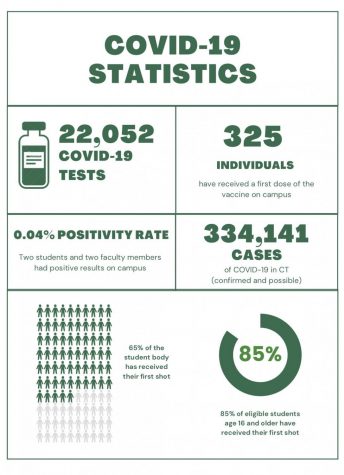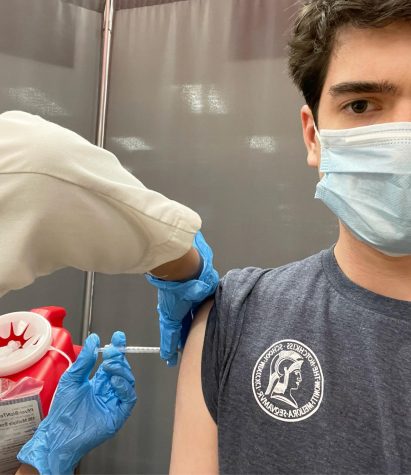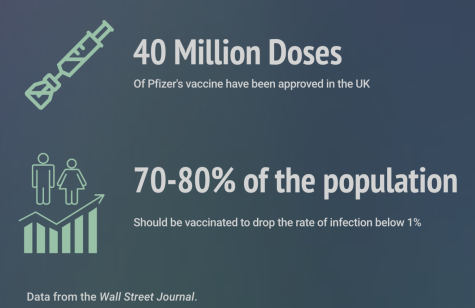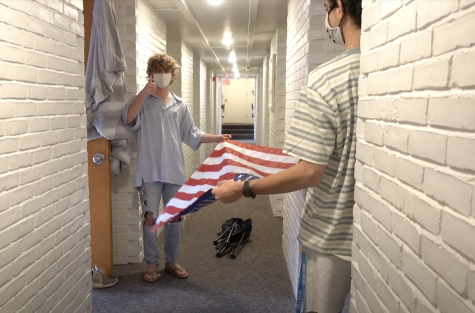New Virus Spreads Internationally from China
The world has been on high alert due to the emergence of a new coronavirus. The virus, named 2019-nCOV, has infected over 25,000 people and killed over 500 as of February 5, 2020.
Coronaviruses are transmitted by person-to-person contact and cause upper respiratory illness in humans. Some are as mild as the common cold, while others, such as Severe Acute Respiratory Syndrome (SARS) and Middle Eastern Respiratory Syndrome (MERS), can be deadly. The outbreak of 2019-nCOV originated in Wuhan, China, but has since spread to other countries. In the United States, 11 cases have been confirmed. Presently, its incubation period is estimated to be 2 to 14 days.
The spread of 2019-nCOV has caused concern among community members about whether events such as the Lunar New Year celebration and College Forum, which were open to international visitors, should have been cancelled or postponed. Members of the Administration considered postponing or cancelling the events, but ultimately decided that there was little to no threat of an outbreak on campus. Dr. Jared Zelman, health services medical director, said, “There is no credible research to indicate that we needed to ask [parents] not to come…or keep them away from others.”
The school hosts many Chinese families and applicants on campus for interviews and tours in the winter. Chinese families’ arrivals on campus are considered a minimal risk. However, administrators feel that they are taking proper precautions to keep the community healthy and safe. Mr. Stephen McKibben, dean of community life, said, “We are in constant contact with the Center for Disease Control and the World Health Organization in terms of monitoring the various threat levels and precautions they are suggesting instituting. We feel as though we’re informed about the risks and pretty confident in our ability to respond accordingly to ensure that our students are safe.”
A number of students have expressed anxiety around the safety of their families abroad. Celina Wang ’23, a student from Shenzhen, China, said, “I am really worried about my family’s situation. I communicate with them on a daily basis about the outbreak to make sure that they are okay.”
The coronavirus has affected some international programs and events available to students. Last weekend, the Hotchkiss debate team traveled to Yale to attend Model UN. At the event, a student from China developed a cough and fever. The final day of the Model UN program was immediately cancelled and students were sent home early. As of January 31, the student tested negative for the coronavirus.
The school has an epidemic response plan to guide administrators in the event of an outbreak. In addition, Dr. Zelman communicates regularly about medical topics such as the coronavirus with the medical directors at peer schools, including Andover, Choate, Deerfield, and Exeter. Dr. Zelman said, “Epidemics are something that we plan for; we think about [them] all the way to the point of closing the school.”
Citizens in Wuhan, the center of the outbreak, and ten other cities in China have been quarantined, leaving more than 50 million people unable to travel. However, by the time the government put the quarantine in place, as many as 5 million travelers had already left Wuhan. Chinese President Xi Jinping allowed a delegation of WHO experts to investigate the outbreak, and WHO declared a global health emergency on Thursday, January 30. WHO Director-General Tedros Adhanom said, “The main reason for the declaration is not because of what is happening in China but because of what is happening in other countries. Let me be clear, this vote is not a declaration of no confidence in China.”
Hong Kong is issuing fewer travel visas to people from mainland China in an effort to stop the spread of the virus. Countries including Indonesia, Mongolia, the Philippines, Russia, and Thailand have placed strict restrictions on Chinese tourists seeking entry.
Doctors suggest taking the same precautions against coronavirus as one does against the flu. Dr. Zelman advises community members to wash their hands often, minimize hand-to-hand and face-to-face contact with others, cover mouths when coughing, limit sharing personal electronics, get adequate rest and hydration, and go to the Health Center if feeling unwell.
The U.S. State Department has placed a Level 4 Travel Advisory on China. As a result, the school has recommended that no student travel to China for Spring Break, and advised caution to any student who will come into contact with anyone who has been in China in the past 14 days.










